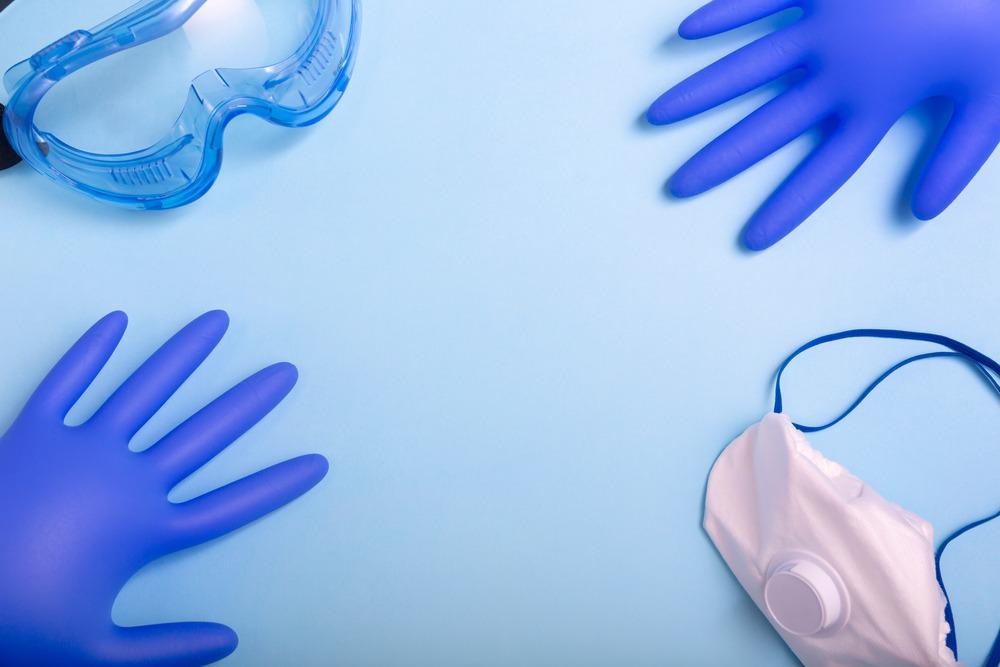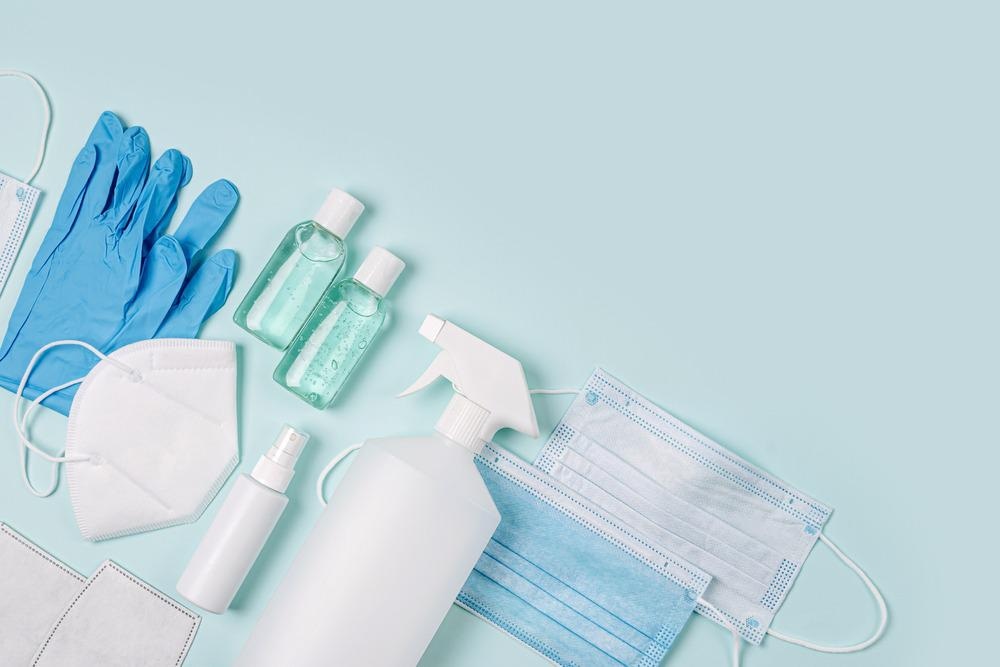The onset of COVID-19 worldwide highlighted the need for more and better hygiene infrastructure. Sanitizers, surface coverings, and antimicrobial compounds have seen rapid progress in the last two years, all aimed at preventing the spread of infection. A British company, BioInteractions, is leading the charge with its innovative antimicrobial medical materials.

Image Credit: Xenlumen/SHutterstock.com
BioInteractions: Healthcare Materials Innovators
BioInteractions, based in Reading, near London, U.K., is at the forefront of antimicrobial technology. Its products – health and hygiene solutions – are combating infection transmission from skin to skin and over surfaces.
The company’s Berkshire base is home to state-of-the-art production and R&D facilities built around its specialist team. The core business revolves around BioInteractions’ expertise in medical coating materials. These products kill bacteria, viruses, and other germs on surfaces while simultaneously reducing the threat of infection or rejection from implanted devices.
R&D, as well as full-scale production, are carried out in Reading’s Science and Technology Centre – which hosts a conglomeration of advanced manufacturing and research organizations.
A custom-designed production laboratory at this site enables BioInteractions to undertake highly sophisticated operations utilizing a broad spectrum of advanced equipment. Equipment on site includes fully customized polymerization rigs and analytical resources like FT-IR and GPC.
The company celebrated its 30th anniversary this year.
BioInteractions partners with major manufacturers around the world, producing hygiene coating materials for cardiothoracic surgery, in vitro diagnostics, catheters, and long-term implantable medical devices like vascular grafts.
The firm also works with established external laboratories to support its analytical and quality testing operations.
TridAnt: The Sanitizer That Keeps On Sanitizing
Building on three decades of experience providing biocompatible materials for the global medical and pharmaceutical industries, BioInteractions recently launched a new product that keeps sanitizing surfaces after application. The technology means that skin contact actually disinfects rather than contaminates uncoated surfaces, keeping people protected after they’ve stopped washing their hands.
Further Reading: Could a New Antimicrobial Coating from Tree Proteins Improve Masks?
The material is called TridAnt, and is the firm’s latest coating for medical devices. The product includes prevention infrastructure that utilizes the company’s expertise and existing technological innovation to achieve unparalleled efficiency.
TridAnt continues to kill 99.999% of gram-negative and gram-positive bacteria, as well as yeast, for up to 100 days after application. It is the only material available that provides this degree of antimicrobial resistance for this much time.
BioInteractions states that TridAnt could help the healthcare industry to prevent infections, confront transmission of pathogens between people, and tackle antimicrobial resistance. Together, all of these factors could enable the development of new procedures and treatments that until now had been too risky.
The material includes a highly effective mechanism that kills a broad spectrum of pathogens as soon as they interact with the coated surface. Both active and passive components in the material work together to prevent deposition, protect against adhesion, and kill pathogens on contact.
TridAnt is biocompatible and non-leaching. This helps to ensure patient safety while effectively targeting the harmful microbes that cause infections.
The skin protection product of the TridAnt range – coupled with an improved washing routine – keeps germs off human skin even during skin-to-skin contact. TridAnt on the skin starts protecting you as soon as you stop washing, and it keeps working up to 48 hours after application.

Image Credit: Igisheva Maria/Shutterstock.com
Building on BioInteractions’ broad portfolio of non-leaching biocompatible coatings, TridAnt provides enhanced infection resistance for extensive periods of time. It makes bacteria physically lyse, preventing them from infecting medical device surfaces or other people.
TridAnt does not use any toxic or eluting components. This marks it out as a significant advance in antimicrobial technology for medical devices.
Antimicrobial Coating Materials
Materials science is important for the development of antimicrobial technologies. Materials’ antimicrobial performance relies on critical interactions between pathogen and surface interface. Successful antimicrobial coatings are designed with a complex variety of biological events occurring at this interface in mind.
Factors that complicate events on the pathogen-surface interface include surface properties like topography, wettability, and composition, protein behaviors, and what biological entities are present.
Effective antimicrobial coatings must work against a broad spectrum of pathogens to meet the requirements of medical devices. They must also provide durable protection, minimizing the costs of implementation, as well as safe variations that are biocompatible to enable large-scale applications.
Multi-action materials used by BioInteractions are biocompatible and non-leaching – they do remain on the surface they are applied and do not negatively affect it. This is especially important for medical devices, which must be accepted by the patient’s body and remain inside it for a long period of time.
The high efficacy against a broad spectrum of pathogens, and the long duration of that efficacy, also reduces the need for antibiotics in patients. This can contribute to tackling the growing problem of antibiotic resistance in the world’s human population.
Next Steps for BioInteractions
BioInteractions is focusing on enhancing hygiene routines for individuals, organizations, and communities to complement its suite of antimicrobial coating products. Combining innovative materials with enhanced routines will lead to a “gold standard” in hygiene and healthcare, according to the company.
In the long term, BioInteractions says that its work preventing infection will move them toward long-term prevention mechanisms and enhanced medical devices. The materials they develop for antimicrobial coatings can also be applied to industrial and consumer products.
References and Further Reading
BioInteractions (2021). “How new medical device technology is combatting disease transmission while improving health and hygiene infrastructure.” Medical Device Network. Available online: https://www.medicaldevice-network.com/sponsored/stopping-the-spread/.
Luthra, A. (2021). “Killing germs inside you, on you and around you.” Medical Plastics News. Available online: https://www.medicalplasticsnews.com/medical-plastics-industry-insights/medical-plastics-materials-insights/tridant-%E2%80%94-enhanced-antimicrobial-biocompatibility-on-medical/.
Disclaimer: The views expressed here are those of the author expressed in their private capacity and do not necessarily represent the views of AZoM.com Limited T/A AZoNetwork the owner and operator of this website. This disclaimer forms part of the Terms and conditions of use of this website.